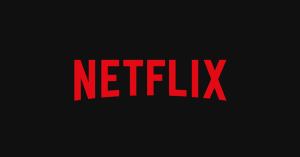A former writers’ assistant on Friends spoke to BuzzFeed News about the legacy of her famous lawsuit from 20 years ago. In the June 11 interview, Amaani Lyle said she initially sought to expose the sexual harassment and discrimination she experienced while working for Warner Bros.
Despite this, managers and HR trainings have used Lyle’s failed lawsuit, widely known as “the Friends case,” for years to insist that free speech in creative environments is protected, even if it may be perceived as sexually harassing or offensive. “It’s a precedent that people are using to indemnify themselves and shirk any accountability,” she said.
Videos by PopCulture.com
Lyle was hired in 1999 as a writers’ assistant for the sixth season of Friends. During writers’ brainstorming sessions, Chase and Malins asked Lyle to take extensive notes, which they could refer to when developing storylines.
According to Lyle, the writers made numerous sexual and racist remarks, including explicit details about their own sex lives. Despite the court ruling that the comments were not directed at Lyle, she said that she was still tasked with recording every word said. “At the time they were saying, ‘Friends is an adult-themed show and it’s very private what goes on in this room,’ but now Friends is looped on Nickelodeon. That’s an adult-themed show?” Lyle said.
Lyle believes she was fired because she suggested Joey (Matt LeBlanc) have a Black love interest on the show to increase diversity and spoke to her superior about a producer’s racist joke. Producers told her she needed to improve her typing speed after these incidents, which shocked her since many writers said she was their favorite assistant.”The reason for termination was slow typing speed, but you can’t do that when I’m the only woman of color on staff and don’t have any concrete proof that I wasn’t doing my job,” Lyle said
In response to her complaint, Lyle said “nothing was investigated,” and she was eventually terminated. “At the time, there were no avenues, there was no HR advocacy, there was no person to represent you if you felt something was wrong if you needed some sort of mitigation,” Lyle said.
Originally, Lyle sued for racial discrimination and wrongful termination, but after talking to her lawyer, she sued for sexual harassment as well. However, Lyle said she felt wholly dismissed and even retaliated against for reporting the issue.
Following her termination from Friends, she filed a 2002 complaint with the California Department of Fair Employment and Housing, naming executive producers Adam Chase, Gregory Malins, and producer Andrew Reich. The three said at the time that some of Lyle’s claims were true but that their sexual comments were not directed at Lyle and were necessary to the creative process.
First Amendment advocacy groups and the entertainment industry mobilized to oppose the case. More than 130 notable Hollywood producers, writers, and directors signed a brief in defense of Warner Bros. and the Friends writers’ room, including Norman Lear, Larry David, Laura Kightlinger, and Yvette Denise Lee Bowser. “It’s a shocking list of people who claim to be ‘woke’ and for the #MeToo and Time’s Up movements, but they’re all on this list,” Lyle said.
In 2006, a judge ruled the writers had not violated any law by making sexual comments because they weren’t directed at anyone in the writers’ room. Lyle said she believes the verdict would not stand post-#MeToo, but its use in HR training sessions and schools shows Hollywood has yet to commit to implementing the ideals of “Time’s Up.”
Following her firing from Friends, Lyle worked on a couple of minor projects before quitting the entertainment business, joining the Air Force, and working in written communications for the Pentagon. As Lyle explained, “back in the ’90s and early 2000s, if you said anything, you were pretty much blackballed.”
Former Warner Bros. employees told BuzzFeed News the Lyle case was cited as an example of sexual harassment in training to remind them that reporting someone for making sexual remarks will be difficult. “They have perverted this case into something as a bullying, sort of scare tactic in a very mafioso kind of way to mute employees and not foster an open, transparent work environment,” Lyle said.
“At some point, they’re going to have to take accountability and realize that they are propelling the systemic issues that keep these problems alive and give them bandwidth and oxygen. They’re the ones doing this.”
Although Lyle is hopeful that change will happen, she said increased awareness is not enough, and real change only comes from taking action. “I tried to sue [Warner Bros.] and have them be accountable. I lost, and I was ready to move on and let it go and let things evolve as it will, but [decades later] Hollywood imploded on itself…There were a lot of highly visible people, A-list actresses, who were now talking about being victims, and people cared more. They didn’t care when it was just some anonymous girl living in Hollywood,” Lyle said.
“We’ve got all of the optics without actually changing things organically and systemically, we are not going to move the ball down the field. You cannot have campaigns such as #MeToo and Time’s Up if you’re still scaring the sh– out of people with my case.”
Most Viewed
-

US television personality Kylie Jenner arrives for the Wall Street Journal Magazine 2023 Innovator Awards at the Museum of Modern Art in New York City on November 1, 2023. The annual awards, now in their 12th year, recognize talents from a range of disciplines, including fashion, art, literature, entertainment, architecture, design, technology, and philanthropy. (Photo by Andrea RENAULT / AFP) (Photo by ANDREA RENAULT/AFP via Getty Images)







